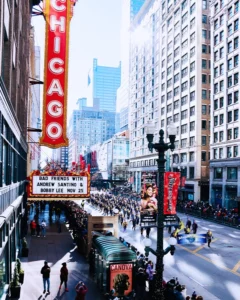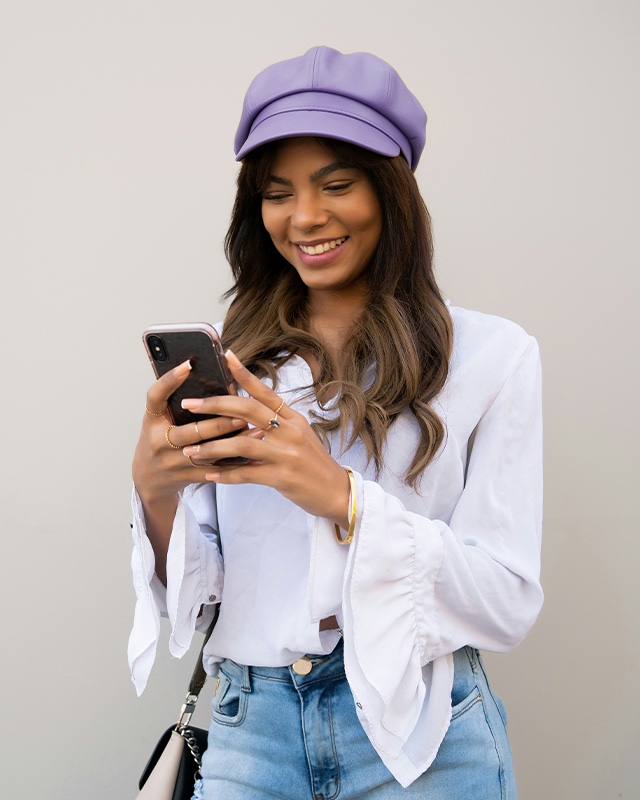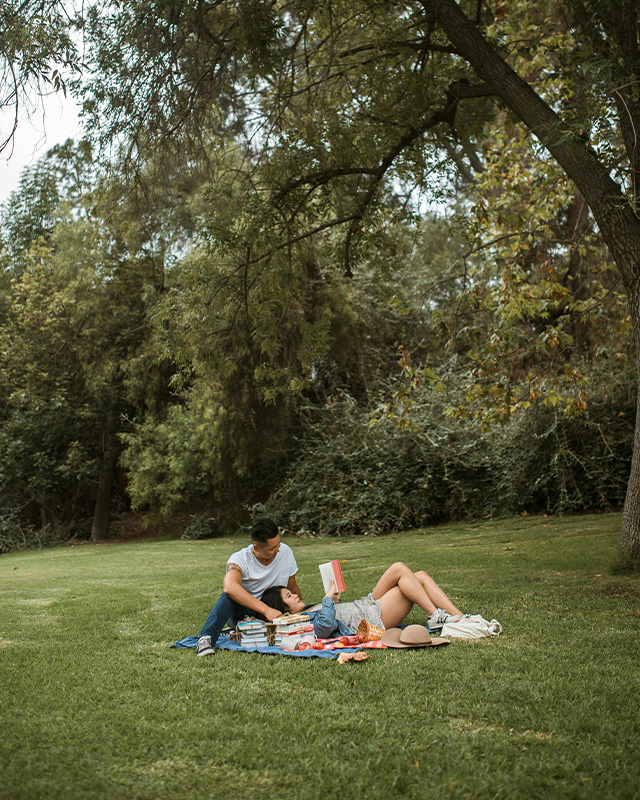Few experiences elicit quite as much anticipation and trepidation as a first date. It’s a delicate balance of self-presentation and mutual discovery, where the stakes feel impossibly high, and the potential for missteps looms large. No wonder then that, for many, the journey to that initial encounter is fraught with anxiety, a persistent undercurrent of worry that threatens to overshadow the excitement and possibility inherent in new beginnings.
The Anatomy of Anxiety
At its core, first-date anxiety is a manifestation of our deepest human needs and fears. Dr. M. Joy McClure, assistant professor at Adelphi University’s Gordon F. Derner Institute of Advanced Psychological Studies, elucidates the concept of “relational ambivalence”—the tension between our fundamental desire for connection and our equally powerful fear of rejection. “Pay attention to the other person—they’re probably as nervous as you are,” McClure says. This push-pull dynamic is particularly salient in the context of first dates, where the potential for both intimacy and disappointment is acutely felt.
The physiological response to this emotional tug-of-war can be profound. A few recent conversations with members of luxury dating site Seeking revealed that a significant proportion of individuals, particularly women, experience extreme stress reactions in anticipation of dates. These reactions can range from mild nervousness to more severe symptoms such as panic attacks. This stark gender disparity underscores the complex interplay of societal expectations and individual vulnerabilities that shape our approach to romantic encounters.
The Mindfulness Paradigm
In the face of overwhelming emotions, mindfulness emerges as a powerful antidote. Headspace, a meditation and mental wellness leader, advocates for a shift in focus from internal anxieties to the present moment. This approach encourages daters to engage their curiosity about their companion rather than becoming mired in self-doubt. Standard first-date advice focuses on calming our nerves. But we also know that in real life, not only is this a difficult task, but it’s also often highly unproductive. In a YouTube video titled “How Do We Cope with Fear?“, Headspace co-founder Andy Puddicombe says, “If we’re always running away from difficult emotions, or if we’re always getting lost in them, then we will never have a chance to understand them, to be at ease with them.”
The efficacy of mindfulness in combating dating anxiety is rooted in its ability to anchor us in the here and now. By cultivating awareness of our breath, our surroundings, and the nuances of our interaction, we create a buffer against the spiral of anxious thoughts. This practice alleviates immediate stress and fosters a genuine connection with our date—a connection unencumbered by the weight of future projections or past insecurities.
The Art of Self-Compassion
Central to overcoming first-date anxiety is the cultivation of self-compassion. Dr. Chris Mosunic, in his clinical review for Calm, emphasizes the importance of setting realistic expectations and practicing self-kindness. This approach acknowledges that perfection is an unrealistic standard and that the accurate measure of a successful date lies in the authenticity of the connection forged.
Incorporating self-compassion into our dating repertoire involves a deliberate shift in internal dialogue. Instead of harsh self-criticism, individuals are encouraged to adopt a nurturing inner voice that recognizes the courage inherent in vulnerability and celebrates the simple act of showing up as oneself.
Power in Preparation
While spontaneity has its charms, there’s an undeniable allure to the well-prepared date. The team at Silver Lake Psychology advocates for a balanced approach to preparation, one that encompasses both mental and physical readiness. This might involve engaging in relaxation techniques, such as progressive muscle relaxation or meditation, in the hours leading up to the date. Such practices calm the nervous system, allowing for a more centered and present mind.

Moreover, the act of preparation extends beyond mere relaxation. It involves a thoughtful consideration of one’s values and intentions in the dating process. By clarifying personal goals and boundaries beforehand, individuals can approach the date with a sense of purpose and authenticity rather than being swayed by the pressures of societal expectations or the fear of judgment.
Reframing Rejection
Perhaps one of the most potent sources of dating anxiety is the fear of rejection. Yet, as psychologists at the Thriving Center of Psychology point out, rejection is an inevitable part of the human experience that offers valuable opportunities for growth and self-discovery. By reframing rejection not as a personal failure but as a natural step in finding compatibility, individuals can approach dating with a more resilient and open mindset.
This shift in perspective allows for a more nuanced understanding of compatibility. Rather than viewing each date as a high-stakes audition for a lifelong partnership, it becomes possible to appreciate the inherent value in each interaction—whether it leads to a second date or serves as a learning experience in understanding one’s preferences and boundaries.
Cultivating Curiosity
Curiosity emerges as a powerful antidote to anxiety in the dating context. By channeling nervous energy into a genuine interest in one’s date, individuals can shift the focus from self-conscious worry to engaged interaction. This approach alleviates personal anxiety and creates a more enjoyable experience for both parties.
Dr. Tirreel De Gannes suggests a novel approach to harnessing curiosity: creating a mental game before the date, such as “bad date bingo.” This playful strategy serves a dual purpose—it provides a lighthearted framework for processing potentially awkward moments and encourages active engagement with the date experience rather than passive anxiety.
Embrace Authenticity
In a world often dominated by carefully curated online personas, the value of authenticity in face-to-face interactions cannot be overstated. The pressure to present an idealized version of oneself on a first date can be a significant source of anxiety. However, psychologists unanimously advocate for the power of genuine self-expression.
This embrace of authenticity extends to the choice of date activities and venues. Selecting environments where one feels comfortable and at ease can significantly reduce anxiety levels. Whether it’s a favorite local café or an activity that aligns with personal interests, the setting should serve as a backdrop that allows one’s true personality to shine through.

Integrating Body and Mind
The mind-body connection plays a crucial role in managing first-date anxiety. Physical practices such as deep breathing exercises, yoga, or even a pre-date workout can profoundly affect one’s mental state. These activities not only release tension but also boost confidence and overall well-being.
Moreover, attention to one’s physical presentation can serve as a form of self-care and anxiety management. Choosing an outfit that feels comfortable and confidence-boosting can provide a tangible sense of preparedness. However, it’s essential to strike a balance—focusing too heavily on appearance can exacerbate anxiety rather than alleviate it.
The Power of Perspective
Gaining perspective on the nature of first dates can be immensely liberating. Recognizing that a single encounter does not define one’s worth or dictate future romantic prospects allows a more relaxed and open approach. This perspective shift involves acknowledging that both parties are likely experiencing some degree of nervousness and that perfection is neither expected nor desirable.
Furthermore, adopting a long-term view of dating can alleviate the pressure associated with any single interaction. Regardless of its outcome, each date contributes to a broader journey of self-discovery and interpersonal growth. This mindset fosters resilience and allows for a more enjoyable, less anxiety-ridden dating experience.
Professional Support
For individuals grappling with severe dating anxiety, seeking professional support can be transformative. Exposure and Response Prevention (ERP) therapy, a specialized form of cognitive-behavioral therapy, has shown particular efficacy in treating social anxiety and related concerns. This approach involves gradual exposure to anxiety-inducing situations, coupled with techniques to manage and reframe anxious thoughts.
Working with a trained therapist can provide personalized strategies for managing dating anxiety, as well as a safe space to explore underlying issues that may be contributing to these feelings. The goal of such interventions is not to eliminate anxiety—a certain degree of nervousness is natural and can even enhance the excitement of new connections—but rather to develop tools for managing anxiety in a way that allows for authentic engagement and enjoyment of the dating process.
Navigating the complex area of first-date anxiety, it quickly becomes apparent that there is no one-size-fits-all solution. The journey to confident and enjoyable dating is deeply personal, shaped by individual experiences, vulnerabilities, and strengths. However, by drawing on the insights of leading psychologists and embracing a holistic approach to anxiety management, it’s possible to transform the first-date experience from one of trepidation to one of genuine excitement and possibility.
The key lies in cultivating a balance between preparation and spontaneity, self-compassion and self-improvement, curiosity about others and authenticity in self-expression. By reframing anxiety not as an obstacle to overcome but as a natural part of the human experience of connection, we open ourselves to the rich range of emotions accompanying new beginnings.








